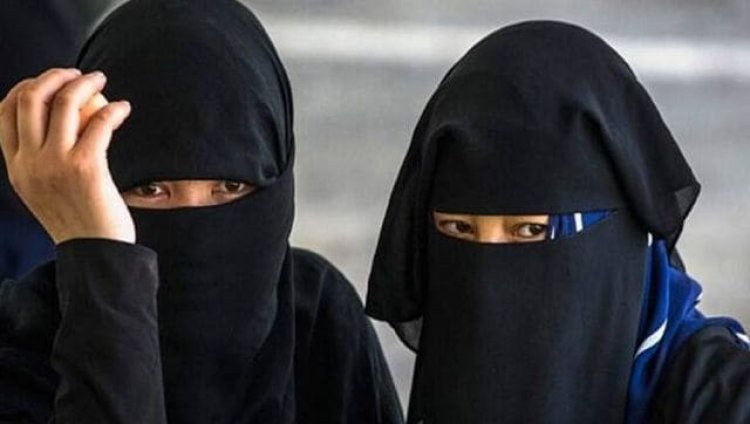Hijab Ban Controversy Lingers
Asia News Agency

Challenges for Muslim girls and women across Karnataka include continuation of their education with examinations in two months, as well as with the judiciary after the Karnataka High Court placed an interim stay on all religious clothing in classrooms until the case is resolved.
Constitutional rights
The advocate for the students of a Kundapura college in the Karnataka High Court case pointed out that religious symbols have always been a part of public life in India, alluding to the Indian model of positive secularism rather than the European model of negating religion from public life. Most fundamentally, on grounds of Articles 14, 21, 25 and the promise of the Right to Education enshrined in the Constitution, denying access to Muslim girls merely because they wear a headscarf is patently unconstitutional and illegal. Several judgments have defended the right to wear religious symbols in educational institutions, and the essentiality of hijab in Islam has been proven in courts.
Some commentators and BJP lawmakers in the state have begun to argue that the girls are mere “pawns” in the hands of some organisations. This assumes that Muslim women in particular, are seen as incapable of choosing for themselves.
What is the controversy about
Shyam S (researcher at JNU in law and governance) thinks aloud when writing "is the question here of religious freedom; or of the hijab, of ‘uniformity’ or of uniforms? Is it about the fact that coastal Karnataka is a heavily polarised region, where organisations like the Bajrang Dal and VHP have played off communities against each other while sowing the seeds for Hindutva majoritarianism? Right-wing supporters argue that the hijab violates uniform, and consequently, uniformity. The Karnataka government order says that students cannot wear clothes that violate public law, order and integrity. Can a tilak, Sikh turban or hijab violate public order? As one of the girls from Kundapura asked: Does my hijab make any noise?”
Contradictory views on hijab
Javed Anand (convener, Indian Muslims for Secular Democracy and co-editor, Sabrang India online) discusses the various contradictory views on the issue of hijab.
“On the one hand are a large majority of secularists — women’s organisations, independent feminists, political parties — along with Muslim religious and political leaders, as also some secular-minded Muslim women and men, who see in the attempt of some pre-university colleges in BJP-ruled Karnataka to bar the wearing of hijab in classrooms as yet another attempt by Hindutva forces to impose their majoritarian agenda on the minorities……. they believe they are defending the Muslim women’s constitutional right to freedom of religion, right to education, right to freedom of choice. On the other hand, are the relatively fewer voices of Muslim women and men at pains to point out that all the Quran asks of Muslim men and women is that they dress ‘modestly’ and ‘decently’. Neither the hijab nor the full-body burqa has anything to do with the fundamental tenets of Islam. Included among these voices are those of Zeenat Shaukat Ali (Islamic scholar, author of The Empowerment of Women in Islam), Ghazala Wahab (author of Born a Muslim: Some truths about Islam in India), Zakia Soman (co-convener, Bhartiya Muslim Mahila Andolan), Shabnam Hashmi (Anhad), many members of Indian Muslims for Secular Democracy (IMSD). It is a view they share with a host of modern-day, internationally renowned scholars of Islam, both women and men.”
The rub is that “the Quran is one but its interpretations are many. Like any other religion, there are in practice not one but many Islams.” Its will be interesting to watch which version of Islam will the court rely on in reaching its judgment — that of orthodox or of reformist Muslims?
Ironically, concludes Anand “while an increasing number of Muslim majority countries including ultra-orthodox Saudi Arabia are moving away from the hijab or niqab is mandatory-in-Islam position, a section of Indian Muslims are headed in the opposite direction…..”
















